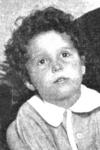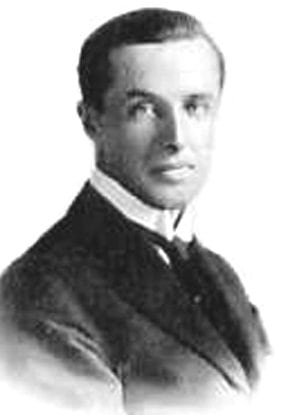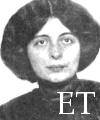A boy wakes, and he is on a train.
The world is wriggling past the window.
Papa looks, but does not say anything.
Nor does he try to smile.
Anyone know the French for biscuit?”
“It is his doll he wants.”
They look at him. He stops chewing, lowers his eyes to the water.
Water slapping rhythmically against the boat.
Too small! Trop petit!
(Où est le grand bateau?)
******
A French-Slovak is being buried as a Jew in Canada.
His wife is on a ship, one day out from New York.
Their children are playing on a stranger’s carpet in a strange city.
******
IT IS May 15, one month after.
The woman was on a ship before, an endlessly steaming ship.
Crossing the Atlantic, but going the other way.
She can dimly remember. It was when her father took them all the way from Buenos Aires. She looked through the rails at the foam, and she did not know where she was going.
Do they know who they are, where they are, the little ones?
She knows who she is - a married woman. A mother with children.
And a woman with a husband. Not a woman who had a husband.
She is ready to acknowledge him. It is the final forgiveness.
The passenger manifest for the Oceanic’s journey from Cherbourg - when she began to retrace their steps, when she came out to the White Star ship by tender - shows that she has given her name as Marcelle Navratil.
![]()
Man and boys boarded on April 10, three days after they had disappeared. She boarded on May 6, after two weeks of rage and bitter despair, one week of hope, and a few days of tear-stained relief.
He has given her back her life, and lost his own.
Good enough for him, she thought at first. And then, at length, she saw that it was good enough.
Good enough of him.
They will all be Navratils again.
They will honour his name – this man who stepped outside the family, who climbed out of his own identity. Who became Hoffman, but who remained half of what they were, half of their achievement. A father, for all that.
But the scrutineers of shipboard documents must see that they are in order. This woman has an ‘M’ in the box where it is to be indicated whether the arriving passenger is married (M) or single (S).
Score that out! Don’t you know she is a widow?
So into the box goes a big black W, with a d beside it, just to make sure.
Occupation: none. They have scored out ‘none’ and written ‘H-wife.’
Housewife. Hoffman’s wife.
The one he said was dead.
But it is he who is dead.
And the foam rolls and tumbles, tumbling always, falling toward the stern.

THE Charing Cross Hotel in London, where they were married. He has come back.
A wooden door and four walls, and two boys looking at him expectantly. Those big beautiful eyes of both.
“Je veux Maman,” says Michel, the boy who took his name.
He is almost fierce.
His eyes are filling. The baby begins to cry.
This is room 126 at the Charing Cross Hotel in London, and he is hugging them both.
“Je veux Maman aussi,” he whispers. “La vieille Maman.”
He brushes their teeth and puts them to bed.
NUMBER 37, Avenue St. Lombard, Nice, France:
A mother is crying her eyes out in the home of her own mother.
She is crouched, head in hands, on an empty floor.
They were here, eating chocolate eggs, at Easter.
*****
HE has a revolver.
There are six chambers, and each is filled with a bullet.
What does he intend?
Why, he will not give them up. Jamais!
He does not know what he intends. He looks at the revolver while they are sleeping.
He does not intend that.
No, there was that other case. Two years ago.
Un autre mari qui s’est sauvée…
A husband who ran away by ship – taking a boy with him. He left his wife.
It was a famous case, because he left her under the cellar.
And the boy was not a boy but his lover, Ethel Le Neve, cross-dressed as they fled.
Perhaps her name sticks in the mind because it seems French. Marcelle, la veuve – that would be Marcelle, the widow. He does not intend that either.
But Crippen had nothing when they came for him on the Montrose.
He was trapped by wireless. There might be police at New York.
Mr Robinson, he called himself.

CHARLES Hoffman, English gentleman.
Not at all like the Old Tailor of Nice, whoever that person was. It is all in the past.
These are my boys, John – who is four years – and Fred, who is only two.
John and Fred.
And now we are booked on the Titanic; it is completely new, like us, and there will be a completely new life on the other side.
It is funny that to go forward, we must go back. At least to have a little look at France again. But after that, away.
Unless there are men of the Sûreté and gendarmes coming out on the tender.
But I have no girlish boy to give me away with a kiss behind the lifeboats.
Only two boys, two English boys. English on paper. They can babble their heads off in the mother tongue just as soon as we are aboard.


“John” and “Fred”
All I have to worry about is the wireless overhead, John and Fred.
The wireless overhead.
****
Through the (second class library) windows there is the covered corridor, reserved by general consent as the children’s playground, and here are playing the two Navratil children with their father – devoted to them, never absent from them.
Who would have thought of the dramatic history of the happy group at play in the corridor that afternoon? – the abduction of the children in Nice, the assumed name, the separation of father and children in a few hours, his death and their subsequent union with their mother after a period of doubt as to their parentage!
How many more similar secrets the Titanic revealed in the privacy of family life, or carried down with her untold, we shall never know.
- Lawrence Beesley, The Loss of the Titanic, Its Story and Its Lessons
****
Hugh Woolner, First Class survivor, is giving evidence to the US Inquiry on Monday, April 29, 1912 -
A sailor offered some biscuits, which I was using for feeding a small child who had woken up and was crying. It was one of those little children for whose parents everybody was looking; the larger of those two.Senator Smith: Its mother was not on this boat? - No.
How old was that child? - I should think it was about five, as nearly as I can judge.
Do you know of what nationality it was? - I could not quite make out.
Do you know whether it was English or American? - I should say it was not either. I should think it was -
Senator Smith (interposing): I mean whether it belonged to an English parent or American parent? - It looked like a French child; but it kept shouting for its doll, and I could not make out what it said before that. It kept saying it over and over again.
Were there two of these children in the boat? - I cannot tell. This is the only one that I had anything to do with. There were several other children in the boat. We handed them into a bag, and they were pulled up the Carpathia's side.
Have you seen them since? - Yes, I think I saw it once on the Carpathia. It had very curly hair. Light, brownish, curly hair.
Was the child identified on the Carpathia? - Not as far as I know.
It is written, the name “Mrs Hays,” under her own address in New York, which will be in care of the French Consul.

MR BEESLEY has already been to an address at West 83rd Street, New York City, the home of Mrs Hays. He confirms that they are the Hoffman boys who were playing outside the second class library.
Mrs Hays says that she has made progress, even though there is a Mr Lefebre who insists on coming all the way from Iowa, in case they are his boys.
“Watch this,” she says, bending to croon to the older boy:
Que sais-tu de Nice?
Maman est à Nice.
The adults exchange meaningful looks. “Well, that’s fairly prompt.”
“Yes, isn’t it. But the woman who is coming from Nice isn’t actually called Hoffman. And I’m told there is another woman coming on a liner from Liverpool.”
Où est ton père?
Je ne sais pas.

Rue de France, Nice, where a tailor had a shop in 1912.
THE body in the well-cut brown suit lies on the deck of the Mackay-Bennett. It yields plenty of paper clues, and leads to the identification of one “Louis M. Hoffman.”
There is a receipt in that name from the offices of the travel agency Thomas Cook & Company, in Monte Carlo.
Mr Hoffman made trips there in March, the Daily Mirror will report on April 23:
“Mr Hoffman paid several visits to the office with his children, and appeared to be an antiquarian, specially interested in old prints.
The employees there believed that he came from Bavaria, and that he was making a tour round the world. He had been staying at Nice, at the Hotel des Voyageurs.”
Perhaps the last part was not a lie, and that he really was staying at that hotel, being separated from his wife and excluded from the family home.
“I learn from Monte Carlo that a Mr Hoffman called at Cook’s offices there on March 25 and booked berths for himself and his two children…”
Something troubled him about the booking he had made, however.
And the tailor thought it over too much.
“He returned to the offices and said that he was afraid that the journey was too long for his children, and that he would continue his tour by going to New York.”
He had first asked “for a through ticket for Australia.”

“…and here are playing the two Navratil children with their father – devoted to them, never absent from them.”

At the grave of Michel Navratil, Halifax, Nova Scotia.
Crippen was hung, Ethel Le Neve acquitted.
Four decades afterwards, in 1951, she was reported to have died.
She had been living in Australia.
Under an assumed name.


Comment and discuss